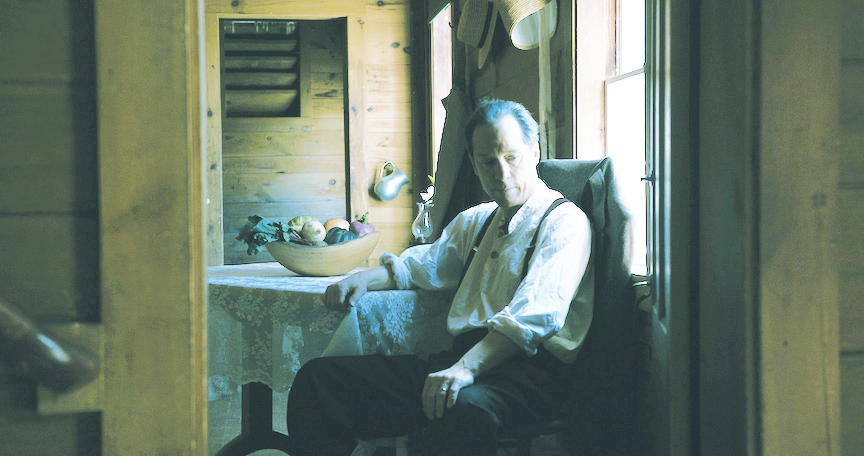Local filmmaker brings a Frost poem to the screen
Local playwright and filmmaker Donald Tongue recently wrapped up filming his adaptation of Robert Frost’s poem “Home Burial” at Canterbury Shaker Village. Tongue discussed what drew him to Frost’s poetry and his approach to interpreting the poem on screen. Follow facebook.com/tonguemtproductions for updates on the film and how to view it.
What inspired you to adapt Robert Frost’s poem ‘Home Burial’ into a film?
A number of years ago, I wrote a play about Robert Frost titled My Neighbor, the Poet that was commissioned by Theater Kapow. I also staged ‘Home Burial’ a number of years ago at Southern New Hampshire University. … I did a lot of research and read a lot of his poetry and was very much taken with the sort of cinematic quality of his poetry; it has very clear actions that he’s describing … and he definitely seems to focus on characters. … Then, he has a lot of dialogue within his poetry between the characters, or, if there’s one character, there’s some sort of internal dialogue going on. I think, in many ways, he just kind of had this [ability to take] these scenes that he was living out himself and convey them through poetry.
You’ve written a number of pieces for the stage; had you ever written for film before this? How are the processes different for you?
I did a 13-part web series called Candid Candidate, which was sort of a mockumentary about two presidential primary candidates, so I had dabbled in [film] a little bit, but this is my first venture into a real full-length feature film. Film is definitely a totally different process. There are certainly things that are the same: You have to work out the acting, the character motivations, things like that, and we rehearse sort of similarly, [as far as] the line delivery and what’s behind it. But for stage, you’re creating something that is to be performed, and it’s going to be the same for each performance, [whereas] in film, you’ve got to think about the different camera angles and how you’re capturing the story through the lens. I had to do a lot of learning about the different types of shots that filmmakers use and what those convey.
How literal is your interpretation of the poem?
I’ve seen other [adaptations] that just use [the poem] as source material; my approach, though, was to use the poem verbatim. There is nothing in the film that’s not in the poem. In the moments where there’s dialogue [in the poem], there’s dialogue [in the film]. When [the poem has] description, [the film has] a voiceover, and the actors perform the descriptive verse [during] the voiceover. I feel that it works really well. … It’s just such a great, wonderfully written poem; I didn’t want to mess with it.
How did you interpret the poem’s more abstract themes and visuals on film?
A lot of the action is clear in the poem. It starts out, ‘He saw her from the bottom of the stairs.’ We had to find a staircase with a window at the top to be able to capture that visual from the poem. … The shot starts from the bottom of the staircase and moves up to her at the window. In some ways, it feels like you’re coming out of the grave, like you’re kind of unearthing this moment in time between these two characters; that was one vision I had as far as capturing the feel and emotion of the poem.
What was it like shooting at Canterbury Shaker Village, and why did you choose that location?
There was a schoolhouse building at Canterbury Shaker Village that had what we were looking for: the staircase in a rustic setting with a window at the top of the stairs. It worked well because, being a schoolhouse, the staircase is a little wider than [those in] some of the older-period farmhouses, where the staircases are kind of narrow. That certainly helped to both create the proper setting and accommodate the film crew in the space. … Canterbury Shaker Village was extremely accommodating for our film shoot; they gave us access to areas in the administrative building for our breaks, loaned us some set pieces and even moved the cows to another pasture and made sure the electric fence was turned off for our outdoor scenes.


